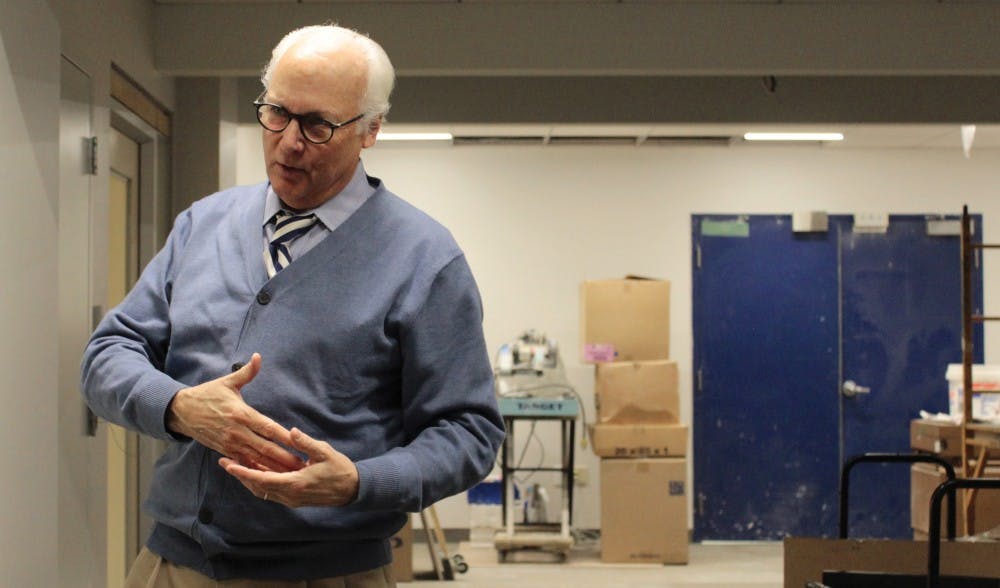On Tuesday, Counseling and Psychological Services officially opened its new facilities at 3624 Market Street.
Although the new office is further from the heart of campus than CAPS’s previous location at 36th and Walnut streets, CAPS Director Bill Alexander hopes the distance will afford CAPS’s clients more privacy rather than alienating them from its services. The new location is 0.3 miles — a six-minute walk, according to Google Maps — from the old location, which CAPS was forced to vacate when plans to build the Ronald O. Perelman Center for Political Science and Economics was announced last January.
Alexander is pleased that students will have more anonymity when they visit the new location, though he acknowledged the “double-edged sword” of wanting to both be more open about mental health treatment and wanting to afford clients privacy. Penn Undergraduate Health Coalition Co-Chair Julie Bittar, a College junior, also sees the increased distance as a way to make students “more comfortable seeking help.” She is encouraged by the increase in space for group therapy because she has found that students have generally positive feedback for CAPS groups.
3624 Market Street, which is diagonally across the street from Student Health Services, is 25 percent bigger than CAPS’s old facilities and has 300 percent more space for group meetings. The yellow-walled reception area leads into a large community room, one of the most distinctive new features. The room is still under construction but will have movable partitions that can separate it into four smaller rooms.
Two smaller meeting rooms toward the back of the new facility will provide additional group space, and associate directors’ offices were designed to be large enough to accommodate their meetings. Previously, CAPS lacked even a room large enough to seat its entire staff at once, according to Alexander.
CAPS’s technology has also been upgraded. Student clients will be given an iPad to complete electronic forms upon check-in, according to University Life IT Technical Director Mary Spada. The office will have a total of 14 iPads, all outfitted with privacy screens that should allow for more discretion than the upright kiosks at the old location, Spada said.
The community room will have interactive screens, and the smaller group rooms will have wall-mounted screens that connect to desktop computers so that clinicians can present to groups more easily than with the projectors in CAPS’s old group rooms.
Mental Health Task Force Co-Chair Tony Rostain said that the task force has been “eager to see more resources given to CAPS,” though it will not present official recommendations until next month. The decision to move CAPS from its old location predated the creation of the task force, but Rostain said he is happy to see steps taken toward destigmatizing care and making it more accessible.
The new location’s nearness to SHS and to Penn Behavioral Health — psychiatric outpatient facilities that are located in the SHS building — could simplify connections and care between the offices, he noted.
Not everyone is convinced that the move will bring positive change to CAPS, though. PUHC representative and College senior Elana Stern, a member of the Green Ribbon Movement, said she still wants to see CAPS focus further in reducing its “unconscionably long wait times” for initial appointments and on improving intake screening. While she is excited to see the new location, she said that no amount of technology can substitute for high-quality services.
The Office of the Provost authorized the addition of four new full-time staffers for CAPS last year — there are a total of 42.5 clinicians, which includes part-time staff, at the new location — but the move is not expected to have a direct impact on wait times for initial appointments. The Provost wanted CAPS to have more space to allow for personnel expansion in the future, Alexander said, but beyond last year’s hires there are no immediate plans to add more clinicians.



